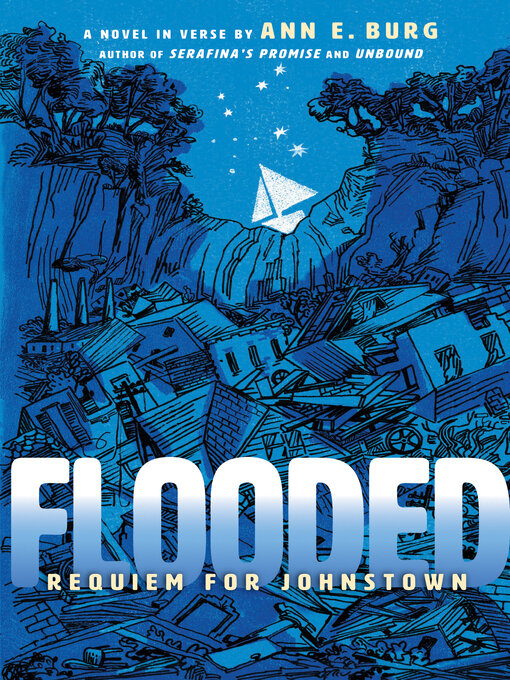* "Stunning, significant and sorrowful, Ann E. Burg's requiem melts history into prose... Highly recommended." — School Library Journal, starred review
"Chillingly effective." — Bulletin of the Center for Children's Books
Johnstown, Pennsylvania, in 1889 was a lively, working-class factory city. Above the soot-soaked streets, an elite fishing and hunting club, built on a pristine man-made lake, drew America's wealthiest business barons. Though repeatedly urged to fix the deteriorating dam that held the lake, the club members disregarded the warnings. And when heavy rains came, the dam collapsed and plunged the city into chaos.
On that fateful day, six children found themselves caught in the wreckage.
The chorus of their voices—all inspired by real people—create a gripping portrait of loss and healing. Plumbing themes of class, injustice, deprivation, and the environment, Ann E. Burg summons her prodigious heart and virtuosic poetry to turn one of the deadliest tragedies in our country's history into a transcendent and hopeful work of art.


